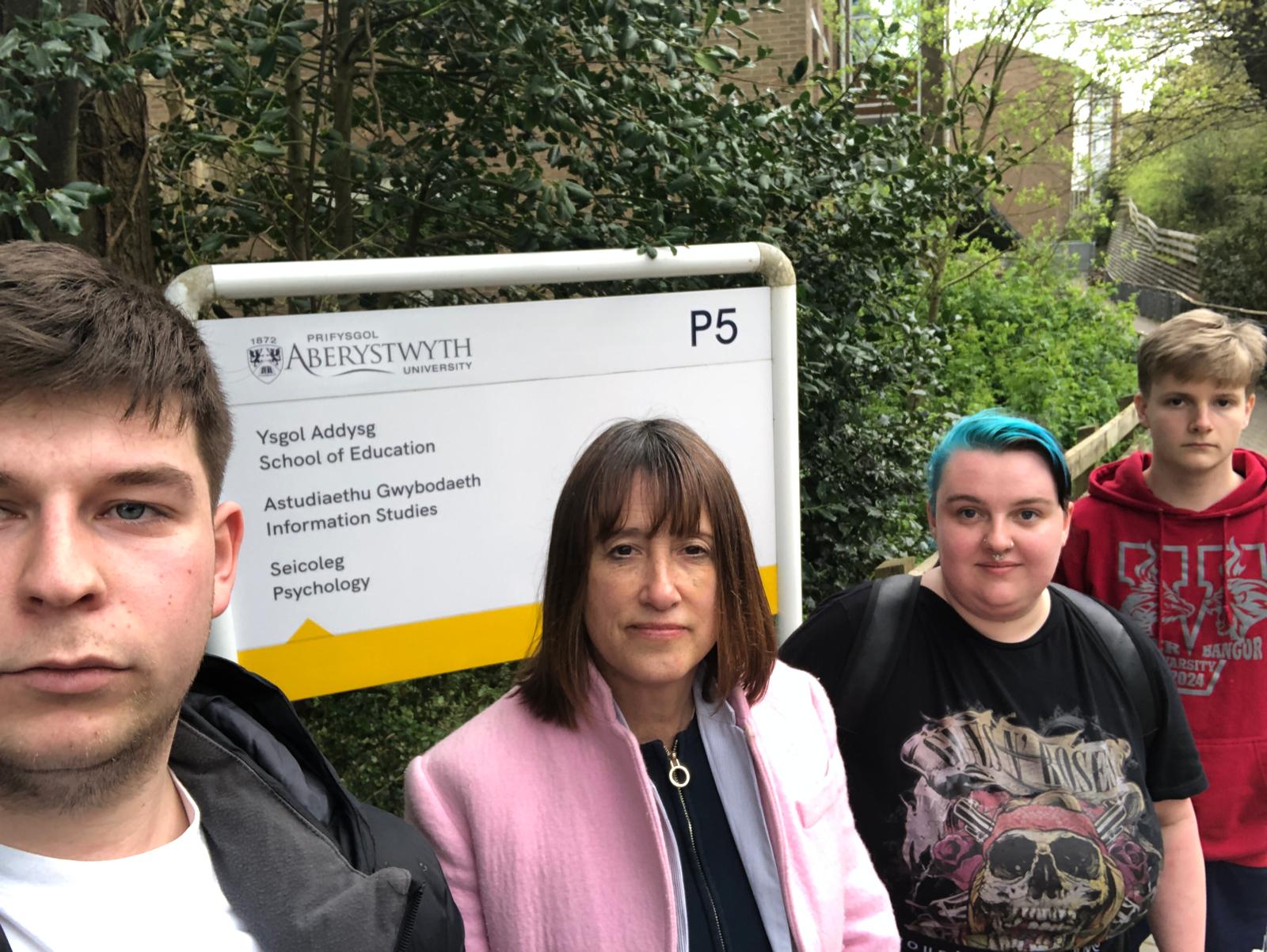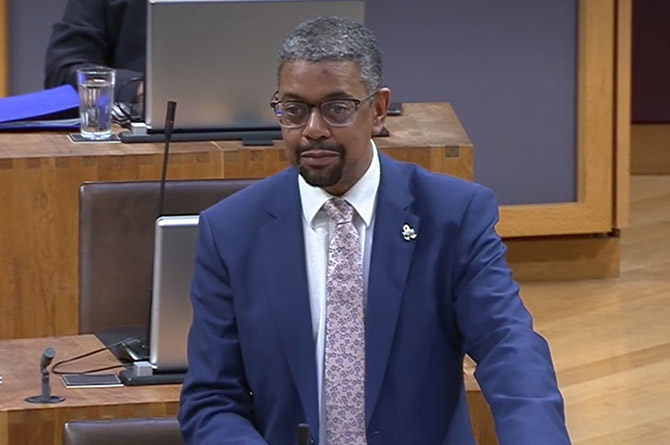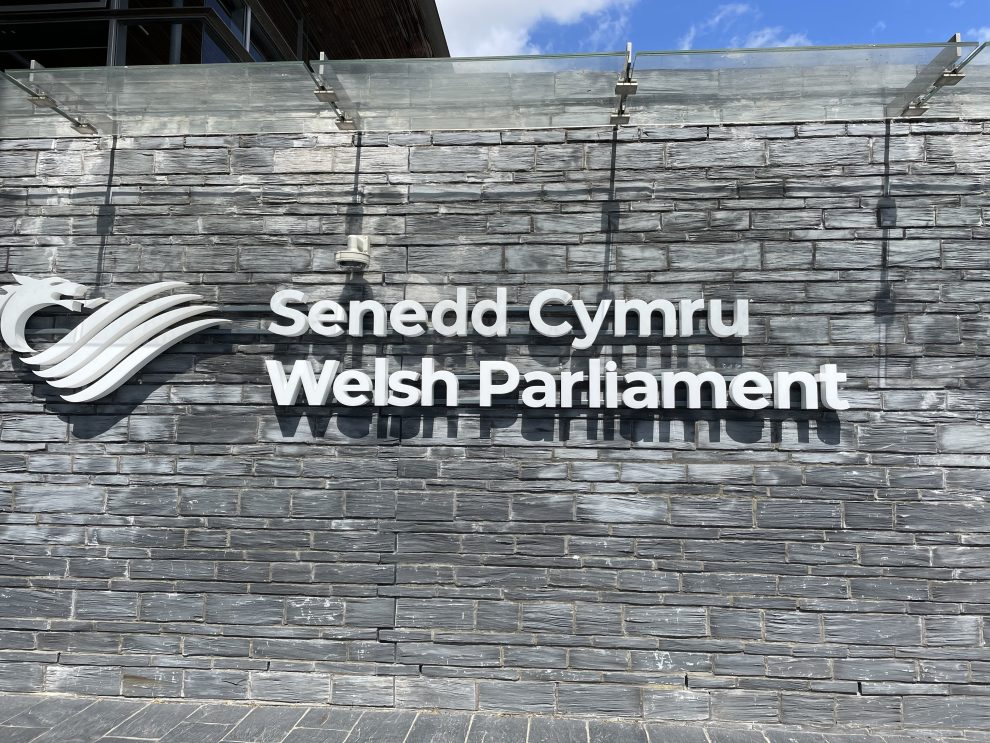Education
Apprenticeship cuts threaten healthcare sector’s future in Wales

SEVERE cuts to the apprenticeship programme in Wales will have dire consequences for patient and residential care, the Welsh Government has been warned.
Proposed Welsh Government cuts to apprenticeship budget, together with the loss of European funding, could result in nearly a quarter (24%) of the programme in 2024-’25 being slashed, it is claimed by training and healthcare providers and educational institutions across Wales.
The National Training Federation for Wales (NTFW) and CollegesWales have already warned about the catastrophic and irreversible impact these cuts would have on the apprenticeships in Wales. They estimate that the number of apprenticeship new starts in 2024-‘25 will be halved to 10,000.
Recent figures lay bare the potential impact on the healthcare sector in Wales, which is facing a 69% reduction in apprenticeship opportunities at a time when the workforce challenges have never been greater.
This is because most learners who start an apprenticeship in healthcare are over the age of 25 years and Welsh Government funding will be prioritised for younger learners.
First Minister Mark Drakeford has stated: “There will be an alignment between the way we spend our apprenticeship money and our young person’s guarantee to make sure that young people needing that start in their careers continue to receive it here in Wales.”
Economy Minister Vaughan Gething, who is responsible for the apprenticeship budget, has echoed that by stating “They [apprenticeships] will still continue to support our young person’s guarantee, helping young people at the start of their careers, and businesses will still be able to recruit apprentices to find opportunities to develop their own staff.”
Recent analysis by the NTFW has identified that, if the Welsh Government does prioritise young people under the age of 25, there may be no new apprenticeship opportunities for those aged 25 and above in 2024-‘25.
The NTFW, which represents work-based learning providers across Wales, says this will have a serious impact on every sector of the Welsh economy, with healthcare and public services facing the most severe consequences.
It’s estimated that there will be 5,500 fewer apprentices in this Welsh Government priority sector, which includes health and social care, clinical healthcare, dental nursing and children’s care and learning and development.
The NTFW says it’s ironic that Health and Social Services, which has been prioritised in the draft budget through an additional investment of £929m, is the very sector which is going to be most adversely affected by the £38m cut in the apprenticeship budget.
Drilling down further, the NTFW says health and social care will see the biggest reduction in opportunities, with more than 3,000 fewer apprentices in 2024-‘25. This comes at a time when the social care workforce is already in crisis, according to NHS leaders in Wales.

A survey in 2022 by the NHS Confederation, a national membership body representing all organisations that make up the NHS in Wales, found that all health service bosses agreed there is a crisis in the social care workforce.
The NHS Confederation claims the social care crisis is impacting every single part of the NHS, from ambulance services and emergency departments to elective care, diagnostics, GPs, mental health services and community care.
This was echoed by a recent inquiry by the Senedd’s Health and Social Care Committee that concluded: “The social care workforce crisis and lack of social care service capacity continues to be one of the main causes of delayed hospital discharge.”
Lisa Mytton, NTFW strategic director, said: “The NTFW urges the Welsh Government to reconsider the proposed cuts to apprenticeships and engage in a constructive dialogue to find a viable solution that supports both the healthcare sector and the wider economy of Wales.”
Healthcare and training providers across Wales are also calling for an urgent review of the decision, emphasising the need for sustainable funding to safeguard the future of healthcare services.
Innovate Trust, a charity that supports adults with learning disabilities to live independently within the community, has expressed its concerns.
“Due to the COVID-19 pandemic, job vacancies have risen to an unprecedented level,” said a spokesman. “Qualification funding is crucial for us as a charity organisation to ensure that our employees are fully qualified and registered with Social Care Wales.
“Any cuts to funding would have a detrimental impact on our work. Innovate Trust heavily relies on support and funding to provide Health and Social Care qualifications to maintain the skills of its workforce.”
Education
Lib Dem leader meets student union after scrapping of teacher training

Last week, the Leader of the Welsh Liberal Democrats Jane Dodds visited Aberystwyth University to meet students following the announcement that the University will be scrapping their Postgraduate Certificate in Education (PGCE) program.
The announcement comes after the publication of an Estyn inspection report last year, which found that the institution had “been too slow” when it came to prioritising student support.
The Welsh Liberal Democrats have now called for the University to produce and implement an action plan that will enable the reintroduction of this course at the earliest opportunity, as well as for the Uni to rectify any similar shortcomings in other training programs.
Commenting, the Leader of the Welsh Liberal Democrats Jane Dodds MS said:
“Aberystwyth university has long been seen as a cornerstone of education here in Wales, and its role in shaping the future of Welsh-medium education is pivotal.
However, the decision by the Education Workforce Council to withdraw accreditation for their teacher training program now puts this at risk.
The report published by Estyn rightfully identified several flaws in the Uni’s approach to supporting student teachers, along with requiring the University to make significant improvement.
The decision of the EWC suggest that these improvements have not been made.
We are now calling on the University to get their act together, fix the shortcomings in this program and begin plans to reintroduce the course as soon as possible.
Commenting, a spokesperson for the Welsh Young Liberals said: “There was an overwhelming lack of support, especially for Disabled Students, which has been consistent since 2020.
Previous lecturers were always late, and assignments were marked late and inconsistently.
As a joint honours student my timetable is very erratic, and this has an adverse effect on my wellbeing.
This does not however, mean that the course should be cut, Aberystwyth university should be looking to improve the course and help deliver the next generation of teachers.”
Commenting, the Welsh Liberal Democrat PPC for Ceredigion Mark Williams said: “The reputation of Aberystwyth University as a well-respected centre of education is rightfully a source of pride for many residents here in Ceredigion.
This is why it is so dis-heartening to hear that the Uni have failed to take the recommendations in the 2023 Estyn report seriously, leading them into the embarrassing position of losing their accreditation which risks delivering a severe blow to the future of Welsh-medium education.
The lack of foresight from the Uni in this regard is deeply worrying and I hope that, for the sake of both the students and the wider community, they take all the steps needed to restart the course at the earliest opportunity.”
Education
Vaughan Gething that says too many children are in care

TOO MANY children are being taken from their families, the First Minister admitted, with more than one child in every 100 in Wales now living in care.
Vaughan Gething also warned far too many children and young people do not have a good experience of the care system as he gave evidence to a Senedd scrutiny committee.
John Griffiths raised concerns about an 83% increase in the number of children in care over the past two decades between 2003 and 2022.
The Labour MS for Newport East warned care rates are significantly higher than in England, with “massive, unexplained” variation within Wales.
Mr Gething said: “The picture is still broadly one where too many children are taken into care,” adding that “some people get decent outcomes” but “far too many don’t.”
The First Minister stressed that solving the problem is not as straightforward as the Welsh Government declaring “you cannot take children into the care system”.
Pressed about how he will reverse the trend, Mr Gething said the aim is not only to reduce numbers but to work with, and for, looked-after children to deliver better outcomes.
Alistair Davey, the Welsh Government’s deputy director of social services, told committee members that 25% of children in care are placed outside their home county.
Jenny Rathbone, the Labour MS for Cardiff Central, criticised the pace of change, raising concerns about “constant slippage” in the Welsh Government meeting milestones.
Warning that Wales is an outlier, with the high number of children in care an endemic problem, Ms Rathbone said councils are facing “huge” costs and potential bankruptcy.
“We haven’t got time on our side and children’s lives are being affected,” she stressed.
Urged to get a grip, Mr Gething acknowledged the need for urgency but cautioned that there is not a switch to flick that will change outcomes for children and young people.
Mr Griffiths also raised concerns about educational outcomes for looked-after children, with only 17% getting five GCSEs at ‘C’ or above compared with 54% for pupils generally.
James Evans, the Tory MS for Brecon and Radnorshire, highlighted that looked-after children face significant additional challenges such as moving just before exams.
Recognising that such disruption has a very real impact, Mr Gething said GCSE results for looked-after children reflect the challenges in their lives rather than their ability.
He was not convinced about the need for a specific strategy, echoing Carwyn Jones’ concerns about the Welsh Government becoming a “strategy factory”.
Ms Rathbone pressed the First Minister about concerns the Welsh Government’s “woolly” child poverty strategy lacks ambition and focuses too much on levers outside its control.
She said the children’s commissioner, Audit Wales, the Bevan Foundation and many others are among a chorus calling for clear targets on reducing child poverty.
Mr Gething stressed that poverty will be a key priority for his government, which will refocus on investing in the first 1,000 days of a child’s life.
He said delivering the objectives of the child poverty strategy would make a radical difference to the lives of children and young people.
Warning that the private sector does not deliver the right quality of care and outcomes, the First Minister set out plans to remove profit from the care of looked-after children.
He explained that Dawn Bowden, the newly-appointed social care minister, will bring forward a bill in the week beginning May 20 before the Senedd’s Whitsun recess.
Mark Isherwood, who represents North Wales, stressed that there is no guarantee a non-profit model will prevent money leaving the sector.
The Conservative warned public sector provision could ultimately cost more and deliver less.
Mr Gething said the reforms are not simply about profit motive, but delivering improved outcomes and making better use of the money.
Warning of a crisis in the social care workforce, James Evans raised concerns about an over-reliance on agency staff with high costs “crippling” councils.
The former councillor said social workers face unmanageable workloads, with as many as 40 cases at a time, as he called for a legal maximum on the number of cases.
Mr Gething rejected the suggestion, saying: “What do you do if you reach a limit and you are not legally allowed to take on any extra work if you have another child who needs support?
“Do you say ‘the inn is full, take your luck in the stable’ or do you say ‘actually, we’ve got to find a way to try to manage with the resources we’ve got’?”
Labour’s Jack Sargeant focused on corporate parenting, warning that more than 25% of children moved care placements twice or more in the year to March.
Mr Sargeant, who represents Alyn and Deeside, backed the “bold and brave” decision to proceed with a basic income pilot for care leavers and asked if it could be extended.
Mr Gething would not give a hard-and-fast commitment, saying an evaluation of the project by Cardiff University will report in 2027 which is beyond the next Senedd election.
However, the First Minister told MSs he would be surprised if Labour was not interested in taking the pilot forward with a manifesto commitment in 2026.
“I certainly hope the evidence allows us to do that,” he told the meeting on April 26.
Asked where care-experienced children sit on his list of priorities, Mr Gething stressed that the government’s commitment to a radical reform summit’s declaration is undimmed.
Education
Conservative calls for academies and free schools rejected by Senedd

THE SENEDD has rejected calls to introduce free schools and academies after a report found major challenges in Wales’ education system.
Tom Giffard led a Conservative debate on educational attainment, warning that Wales is consistently at the bottom of UK-wide league tables.
The party’s new shadow education secretary pointed to an Institute for Fiscal Studies (IFS) report on education in Wales which found low outcomes and high levels of inequality.
Mr Giffard told the Senedd the IFS report highlights the pitfalls of the Welsh Government putting all its eggs in the basket of a skills-based approach.
Criticising a failure to measure skills inequalities and pupil progress, he stressed that Wales’ lower performance is due to policy and approach rather than funding or the pandemic.
He said: “It seems the Welsh Government relies on Pisa results to tell the story but then, when those same results are all too disappointing, they are dismissed in equal measure.”
Mr Giffard, who previously worked in a primary school, said declines in Pisa results can be observed in almost every country that has adopted a skills-based approach.
Raising concerns about disappointing Pisa results, the South Wales West MS pointed out that Wales saw the lowest scores in the UK for every subject.
Heledd Fychan, Plaid Cymru’s shadow education secretary, warned that Wales’ schools are understaffed and facing difficult decisions due to budgets being at breaking point.
She criticised implementation of the Welsh Government’s additional learning needs (ALN) reforms, saying schools cannot realise the aims without the budget to bring them to life.
Ms Fychan said Plaid Cymru agreed with much of the Tory motion but her party would not support calls for free schools and academies.
Sam Rowlands described the IFS report as damning, warning that the Welsh Government’s education reforms have been disastrous and have widened inequality.
The Tory MS claimed the reforms are systematically holding back disadvantaged children, saying: “The most remarkable fact is that the performance of disadvantaged children in England is either above or similar to the average for all children in Wales.”
Mr Rowlands added: “The poorest in England’s schools are doing the same or better than the Welsh average, thanks to ambition, the academies and free schools.”
Samuel Kurtz, a fellow Tory, said free schools and academies have driven up standards in England as he argued a Wales roll-out provides an opportunity to improve outcomes.
James Evans, the Conservative MS for Brecon and Radnorshire, highlighted the party’s pledge to get 5,000 more teachers into Wales’ classrooms.
Buffy Williams, the newly elected chair of the Senedd’s education committee, said Wales is undergoing a profound transformation propelled by ALN and curriculum reforms.
The Labour MS for Rhondda stressed the importance of listening to teachers and allowing ample time for the reforms to take root in classrooms across Wales.
Altaf Hussain recounted a conversation he had this week with a headteacher at one of the largest schools in his South Wales West region.
The Conservative said: “The major improvements they have been delivering to attainment and addressing behavioural issues are all at risk because of cuts to funding.
“Vital work undertaken to improve the lives of young people with additional needs could be halted because they cannot afford to continue employing the support workers.”
Lynne Neagle recognised the scale and seriousness of work still ahead to improve Wales’ education system, stressing: “I am not, in any way, complacent about that task.”
Wales’ newly appointed education secretary, who takes over from Jeremy Miles, said sustained improvement in attainment will be among her top priorities.
She told the chamber: “My early focus has been to listen closely to schools and where it is clear that schools seek more scaffolding.”
Ms Neagle said the Welsh Government will work with trade unions and employers to reduce workload and eliminate unnecessary red tape.
The Conservative motion was voted down, 14-35, following the debate on April 24. The motion as amended by the Welsh Government was agreed, 26-23.
-

 News3 days ago
News3 days agoPolice investigating after woman found dead on beach near Pennar
-

 News3 days ago
News3 days agoPolice discover body in search for Luke Stephenson, 19
-

 News3 days ago
News3 days agoCouncillors block Milford Haven boxing event – promoter to appeal
-

 Crime4 days ago
Crime4 days agoLlandissilio man accused of making hundreds of child abuse images
-

 News2 days ago
News2 days agoBeautiful, funny and lovely: Family pay tribute to Sian Batchelor
-

 Business4 days ago
Business4 days agoLidl GB eyes Pembroke Dock for new larger supermarket
-

 News4 days ago
News4 days agoSearch efforts continue for missing teenager Luke Stephenson
-

 News6 days ago
News6 days ago‘Honest’ caravan site owner ran site ‘under the radar’ for 20 years

























